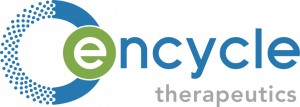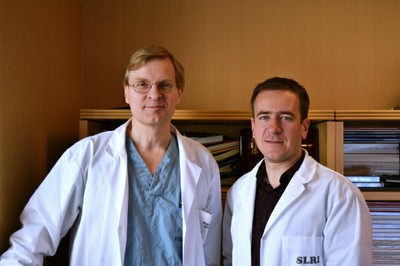 “The first disclosed grant under Merck & Co. Inc.’s Canadian translational initiative will bolster the ability of macrocycle-based Encycle Therapeutics Inc. to conduct lead optimization of its integrin [a4b7,] inhibitors for inflammatory bowel disease,” writes Michael J. Haas in SciBX’s feature on the partnership, “Merck Encycles through Canada.” The article appears in the publication’s December 4, 2014 issue.
“The first disclosed grant under Merck & Co. Inc.’s Canadian translational initiative will bolster the ability of macrocycle-based Encycle Therapeutics Inc. to conduct lead optimization of its integrin [a4b7,] inhibitors for inflammatory bowel disease,” writes Michael J. Haas in SciBX’s feature on the partnership, “Merck Encycles through Canada.” The article appears in the publication’s December 4, 2014 issue.
Read the Encycle press release that prompted this article.
The article explores the current grant partnership between Merck, Encycle Therapeutics, MaRS Innovation, the Institute for Research in Immunology and Cancer–Commercialization of Research (IRICoR), and the Université de Montréal’s Institute for Research in Immunology and Cancer (IRIC), and takes an inside look at the company’s progress to date.
Here’s an excerpt:
Encycle is a spinout from the University of Toronto founded in 2012 to solve the primary challenges of macrocycle drugs–poor cell penetration and low oral availability.
According to Parimal Nathwani, the company was selected by MaRS Innovation and IRICoR (Institute for Research in Immunology and Cancer–Commercialization of Research), two of the three agencies originally tasked with disbursement and management of the Merck fund, because it was a good match with IRIC’s competencies. The third agency, The Centre for Drug Research and Development, is not involved in this deal. IRICoR is the commercialization arm of IRIC.
“Encycle has a good chemistry platform and nice early discovery work on its integrin [a4b7,] inhibitor program, which is now at the point where it needs to move through lead optimization,” said Nathwani. “IRIC scientists have strong expertise in medicinal chemistry and have worked with industry on optimization, pharmacokinetics, toxicity and other preclinical studies, so they can provide Encycle with pharma-grade optimization.”




